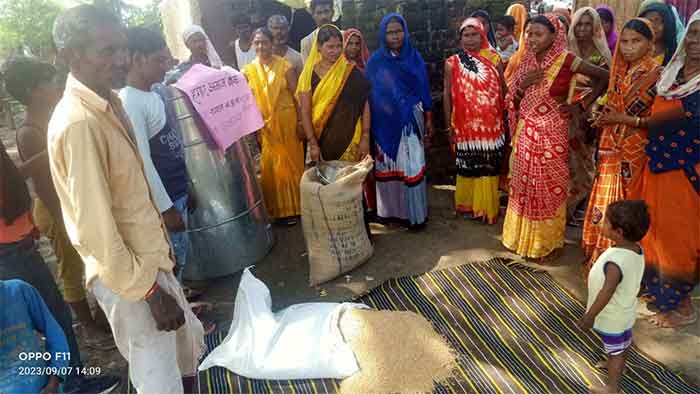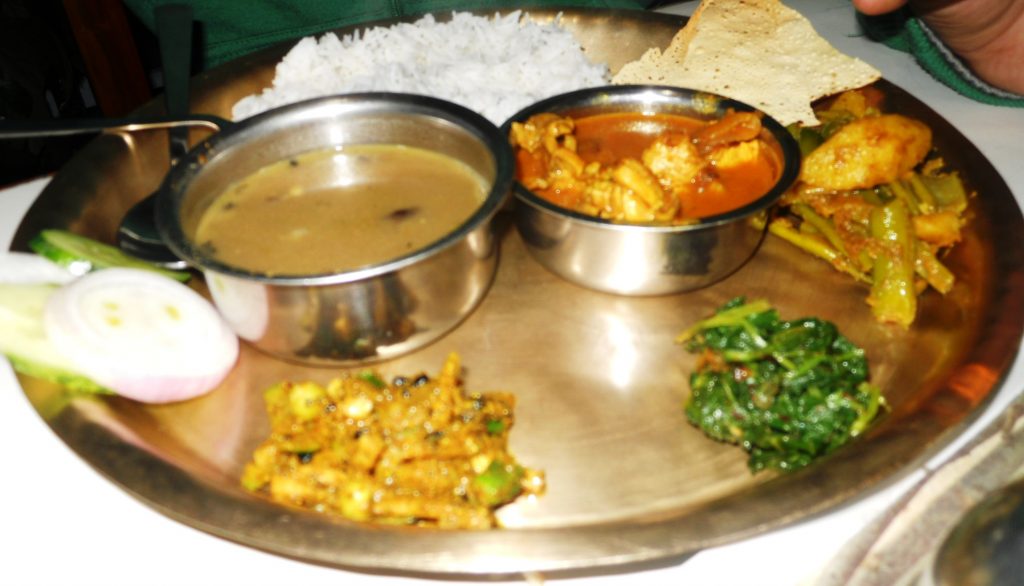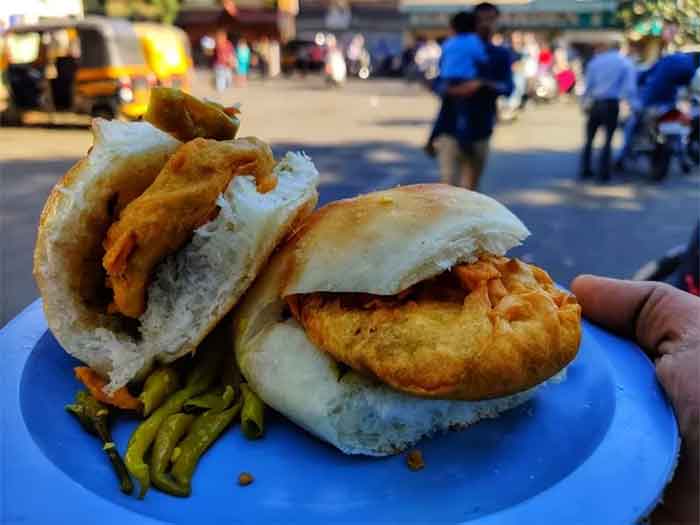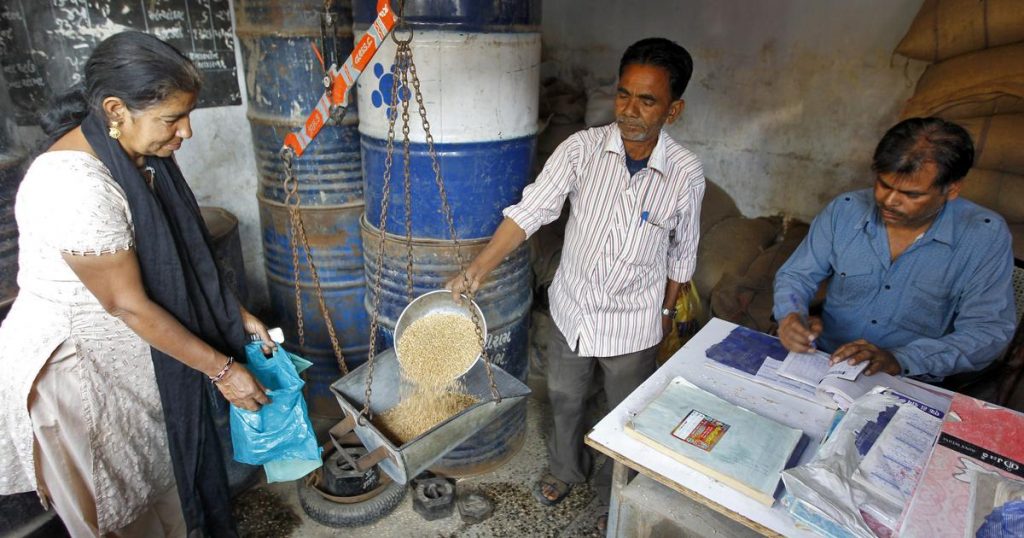
Jarva Chauki is a village in Atarra rural area of Banda District (Uttar Pradesh). Several households face a livelihood crisis here and at times lack the minimum food stock needed to keep away hunger. These problems increased after the pandemic related distress.
To try to ensure that no one remains hungry, a local voluntary organization Vidya Dham Samiti has started a food bank here. As Farida, one of the women who manage this food bank says, “Now any household facing a crisis situation here can ensure that no one in the family will go hungry. Nor will they have to borrow money at a very high rate of interest. They can take wheat from here and return it later.”
A food bank is one of the most effective and low-cost means of reducing hunger, particularly seasonal hunger, a means of reducing hunger which costs very little to start and maintain relative to its great usefulness. In various communities affected by hunger, one common problem often faced is that there are certain lean seasons when the problem of hunger is particularly acute. During these difficult periods people are often forced to borrow at a high rate of interest which creates longer-term indebtedness problems.
A food bank offers a way out of this forced indebtedness. For a typical small community a grain storage tank of a capacity of 5 quintals of wheat and 5 quintals of wheat can be purchased for about Indian Rs. 15,000 or INR 15000 or, if we add a few misc. expenses of transport or sudden rise of price etc., about INR 17000. A small local committee of responsible members can be formed to guide the functioning of the food bank. Any needy member of the community can take a certain amount of grain at a time for a certain period of time by approaching the committee. In a small community such needs are well-recognized.
At the time of returning, several borrowers are happy to return a little in excess, say 12 kg. instead of the 10 kg. borrowed– hence on this account the stock grows. However some borrowers are genuinely unable to return. They can be given a waiver. Hence what is not returned is hopefully balanced by what is returned a little in excess willingly.
However in very difficult times, such as a serious drought situation in a village, it is possible that several borrowers are unable to return and their number goes up. At such times more grain can be added to the food bank to maintain its capacity.
Depending on the size of the community served we can have just a 2 quintal food bank or a bigger 10 quintal food bank. Its budget will increase or decrease accordingly.
In addition to a cereal like wheat or rice, the food bank can also offer pulses on a similar pattern. A 5 quintal wheat bank can be accompanied by a one quintal pulse bank.
This is a low-cost means of reducing hunger in a village or a slum and any compassionate citizen or group of citizens can get involved with this easy and cost-effective way of reducing hunger. They can start this initiative in their own area. If they do not have any previous experience of such work or adequate contacts among weaker sections, then it will be better to start this work through some voluntary organization or trade union or other such agency that has the necessary experience for this. Any such organization in your area whose honesty you trust will be able to help you in initiating such an effort in a settlement where this is really needed.
However in case you do not have such contacts and will still like to help in starting a food bank, then you can contact this writer at [email protected] and he will help you in getting in touch with persons who can initiate a food bank with follow-up work as well. Please do not send any money to this writer for this; his role is only to help you in getting touch with people who can take this further.
Caption of photo–Picture shows food grain being distributed from a food bank in a village of Banda district (UP)
Bharat Dogra is Honorary Convener, Campaign to Save Earth Now. His recent books include Planet in Peril, Man over Machine and Protecting Earth for Children.















































